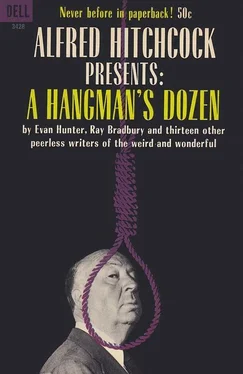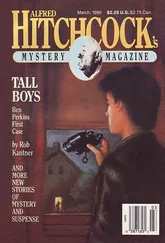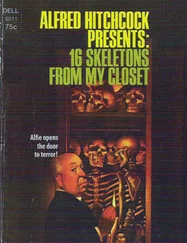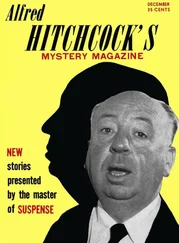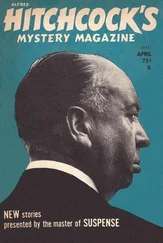* * *
The man came into the homicide squadroom about nine a.m. He was about forty-five, well-dressed and freshly shaven. His suit had been so recently pressed, it looked as though he hadn’t even sat down in it since it left the ironing board. His whole appearance was neat, except that his necktie was slightly off-center and his hair was sloppily combed.
He gave the impression that he had been busily trying to sober up after an all-night binge by having a cold shower and a lot of black coffee. He’d also made himself presentable. The sobering-up process had, obviously, not been completely successful.
I said, “Yes, sir?”
Leaning his hands on the edge of the table where I was sitting, he carefully looked me up and down. “You a policeman?”
“Uh-huh,” I said. “Sergeant Sod Harris.”
“You’re not wearing a policeman’s suit,” he said owlishly.
“In the detective bureau we don’t wear policemen’s suits,” I said. “Believe me, I’m a policeman.”
He let go of the table edge, straightened up and swayed slightly. “All right. If you’re a policeman, lock me up.”
I looked him over thoughtfully. Sam Wiggens, who was checking a case in one of the filing cabinets, put the folder back, and came over to stand alongside of me.
I said, “You done something to be locked up?”
The man gave his head an impatient shake. “Just want to be looted up.”
“Why?”
“You need a reason?”
Sam Wiggens said, “There has to be a charge, mister. We’re not running a boarding house.”
The man turned his gaze to Sam. It took him time to focus his eyes. “Is drunk good enough?” he inquired.
Sam looked him up and down. “Might be.”
“Well, you ever see anybody drunker?”
Sam looked at me and I looked at him. Turning back to the drunk, I asked, “How’d you happen to come here?”
“What?”
“To this office. Know where you are?”
He considered this before saying brightly, “Sign on the door said Homicide.”
“Yeah,” I said. “You wanted to turn in drunk, why didn’t you just go to the Central District desk downstairs?”
This presented him with a problem. He had to consider some more before saying, “Just came in the first door I saw.”
“On the third floor?” Sam inquired. “You didn’t notice any doors on the way up?”
The drunk looked from Sam to me and back again. He couldn’t seem to think of any answer.
I said, “Want to tell us your name, mister?”
He shook his head. “I don’t see that that’s necessary. Look, gentlemen, I came in here voluntarily. I wasn’t arrested and dragged in. There’s no reason to treat me like a criminal.”
Sam said, “Nobody’s treating you like a criminal. We just want to know who you are.”
“Mind if I sit down and explain things?” he said.
“Go ahead,” I told him.
The man carefully seated himself across from me, fumbled out a package of cigarettes and gave me an inquiring look. I pushed an ash tray toward him and held a lighted match to his cigarette.
“Thanks,” he said, inhaling.
He offered the pack to us, and we both shook our heads.
“About this explanation—” I prodded.
“Well, first you must understand that I have a rather prominent social position.”
“Uh-huh.”
“I wouldn’t want it in the papers that I’d been booked as a common drunk. Even though I am a common drunk.”
Sam said, “You going to get to the point, mister?”
“I’m getting there. You see I’m an alcoholic.”
“No!” I said.
“Fact. A periodic. Sometimes I go for months without a drink. Doesn’t bother me a bit. Go to cocktail parties, watch everybody else slugging it down, don’t have the least desire to touch it myself. Then, for no reason, I decide to try a single sip. And bingo.”
Neither Sam nor I said anything.
“Don’t know why I do it,” he went on. “Same thing always happens.”
“What’s that?” I inquired.
“I get drunk and stay that way for days.”
Sam asked, “How long’s it been this time?”
“Three and a half days,” he said promptly. Someone must have told him, because he couldn’t have been keeping track of time. “After eighteen months without a drink.”
I said, “You still haven’t said why you came here.”
“Well, sir, I decided the only way to stop was to get myself locked up. No way I could get hold of it in jail, you see.”
I grunted and Sam said, “You always sober up this way?”
“Sir?”
“Ever turned yourself in before?”
He shook his head. “First time I’ve tried it.”
“What made you decide this time?”
He shrugged. “Just seemed like a good idea.”
I said, “Want to tell us your name now?”
He shook his head again. “I explained why I can’t do that.”
After looking him over for a moment, I said, “Mind emptying your pockets?”
Agreeably, he began removing items from his pockets and laying them on the table. There was a handkerchief, a pack of cigarettes, a book of matches, a key ring with some door keys on it, some change and a money clip containing a few bills.
I said, “No wallet?”
He smiled. “I anticipated this. I left all identification at home.”
Sam and I exchanged glances. Sam asked, “You ever been arrested?”
“No, sir,” he said with an emphatic headshake.
Picking up the key ring, I handed it to Sam. “Take this up to the lab, Sam, and run them all through the key machine.”
The man straightened in his chair. “What’s the key machine?” he asked suspiciously.
“A machine that identifies locks,” I told him. “We’ll have your home address in fifteen minutes.”
He looked at me uncertainly. “I didn’t know you could do that.”
“You know it now. Go ahead, Sam.”
Sam was moving toward the door when the man said, “Wait a minute.”
Sam halted to look at him. We both waited.
The man said, “I wouldn’t want my wife to know about this.”
We continued to wait.
“All right,” he said with an air of resignation. “My name’s George Cooper.”
I asked, “Where do you live?”
He gave me an address on Lindell Boulevard. While I was writing it down, Sam tossed the key ring back on the table and returned to his previous spot.
I said, “Now let’s get back to the important question. Why’d you come to Homicide?”
“I told you,” Cooper said. “It was the first door I saw.”
The phone rang and Sam answered it. “Homicide. Wiggens.”
After listening a moment, he said, “Yeah, he made it. Thanks for checking.”
He hung up, glanced at Cooper, then at me. “Information desk downstairs,” he said. “Just checking up.”
“On what?” I asked.
“Fellow asked where to find Homicide. They wondered if he ever got there. They thought he might have been too drunk to find his way.”
We both looked at George Cooper, who tapped ashes from his cigarette in an elaborate pretense that he didn’t know what Sam was talking about.
I said to Sam, “See if he has a record.”
Sam went over to pick up the phone. I gazed at George Cooper steadily while Sam was giving his name and description to Records. Avoiding my eyes, the man butted his cigarette.
While waiting for Records to phone back, we continued to question Cooper, but he still refused to say why he had turned himself into Homicide instead of downstairs. When Records finally phoned back that there was no package on the man, we gave up. We decided to take him down to Central District and book him.
Rising, I said, “Okay, Cooper. Let’s go.”
“Where?” he inquired.
Читать дальше
